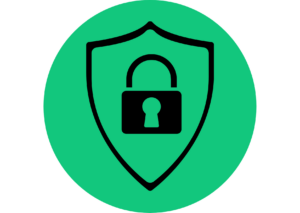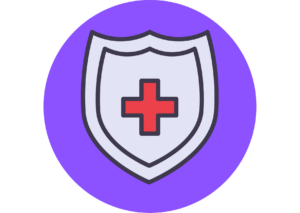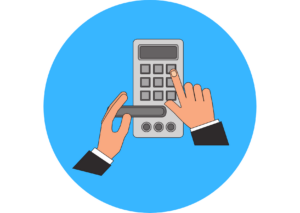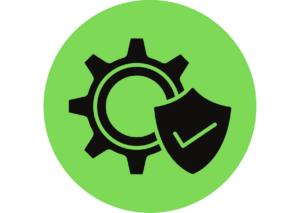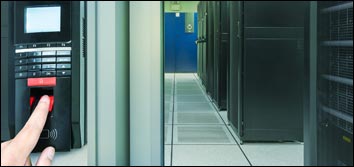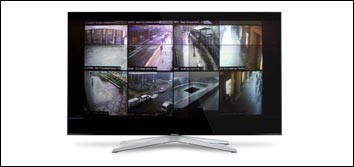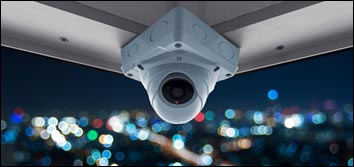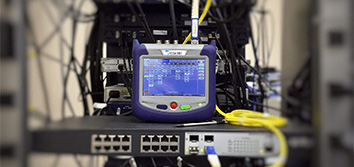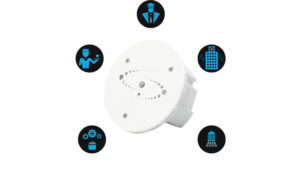HEALTHCARE SECURITY SOLUTIONS
Focused on Health, Safety, Security, & Privacy
,Are you managing all the risks and threats that today’s hospitals face? Are your Chicagoland hospital security systems and procedures compliant?
Today’s healthcare and hospital security systems are high-level intelligence platforms that span across facility access, information, and secure response. A comprehensive healthcare security solution keeps your patients, visitors, and employees safe while providing peace of mind. Health, Safety, and Security are top priorities for every healthcare organization.
A proactive plan on identifying the high-density areas, like Chicago, where people are mostly gathered in healthcare facilities is essential. Smart access control software with modernized systems can track staff movement with motion detection technology to establish an alternative route to reduce the crowd. A modernized Touchless access system goes beyond reducing the “touchpoints” in the hospital facilities. Integration with other security systems such as video surveillance, mass emergency notification systems, visitor management systems provides complete coverage to protect your facility.
Umbrella Security Systems can guide you through creating a comprehensive healthcare security plan for your Chicago area facility. Contact us Today!
JUMP TO A SPECIFIC CHAPTER
Chapter 1:

Complete Healthcare Security Systems
Healthcare security systems is a body that ensures patients, staff and visitors safety in a healthcare facility. It requires a lot of planning, designing and installation of the security systems to ensure compliance with the Illinois and federal privacy regulations.
Healthcare security systems in Chicago involve the tech tools such as access control systems, video surveillance systems, visitor management systems, mass emergency notification systems that provide a unified solution with cutting edge technologies for increased security and safe mobility within the healthcare facility.
Healthcare security systems work on a simple concept of securing the entry points in the facility. These entry points are secured with access control systems that have a reader mounted on the front door of the facility. When the user scans the credentials in the reader, it signals the access control panel via sensor technology or wired connection. The access control panel is the main part of the system at the backend, installed in the most secure place in the facility that controls all the components of the system. Surveillance cameras are installed indoors and outdoor in the facility in the right position that can capture the desired view. Motion sensors, intruder detectors, facial recognition, touchless technologies make the security system robust, safe and flexible for easy scan and increased security. Moreover, integration with mass emergency notifications systems sounds the alarm when a security zone is breached and communicates with the right individual or group in the facility.
Functions of the components that build up the healthcare security systems are as follows:
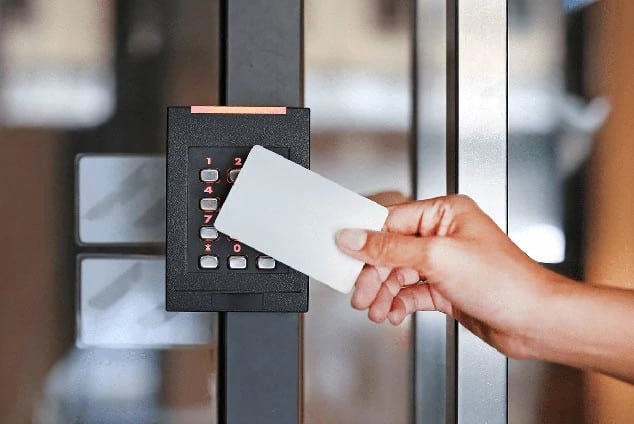
Access control systems grants access only to authorized people in the facility. This is tremendously important because it keeps unauthorized people away, ensures the safety of sensitive information, protects staff and patients, strictly controls the healthcare equipment and controlled substances and more.
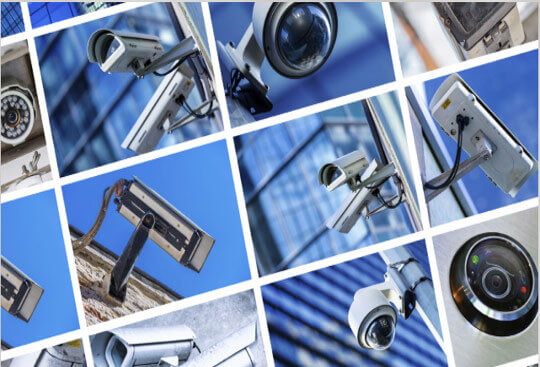
Video Surveillance systems record live footage using powerful and advanced security cameras capable of capturing most of the views in the facility. Monitoring the videos helps to reduce incidents of abuse or neglect, protect against theft, dishonest employees, and vandalism.
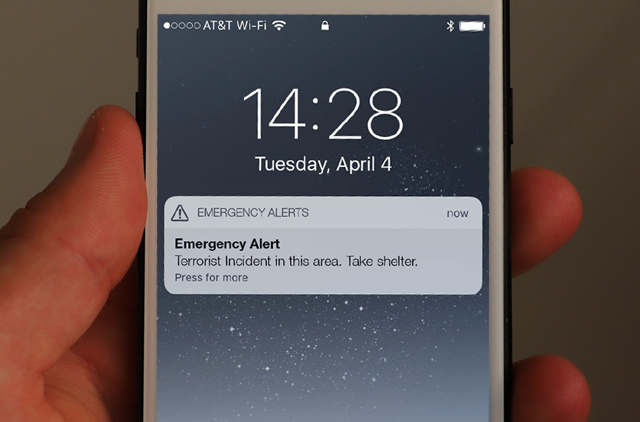
Mass Emergency Notification Systems in a Chicagoland healthcare setting has a lot of benefits. The system not only communicates routine messages for events such as inventory counts but also alerts staff, patients and visitors during emergency situations.
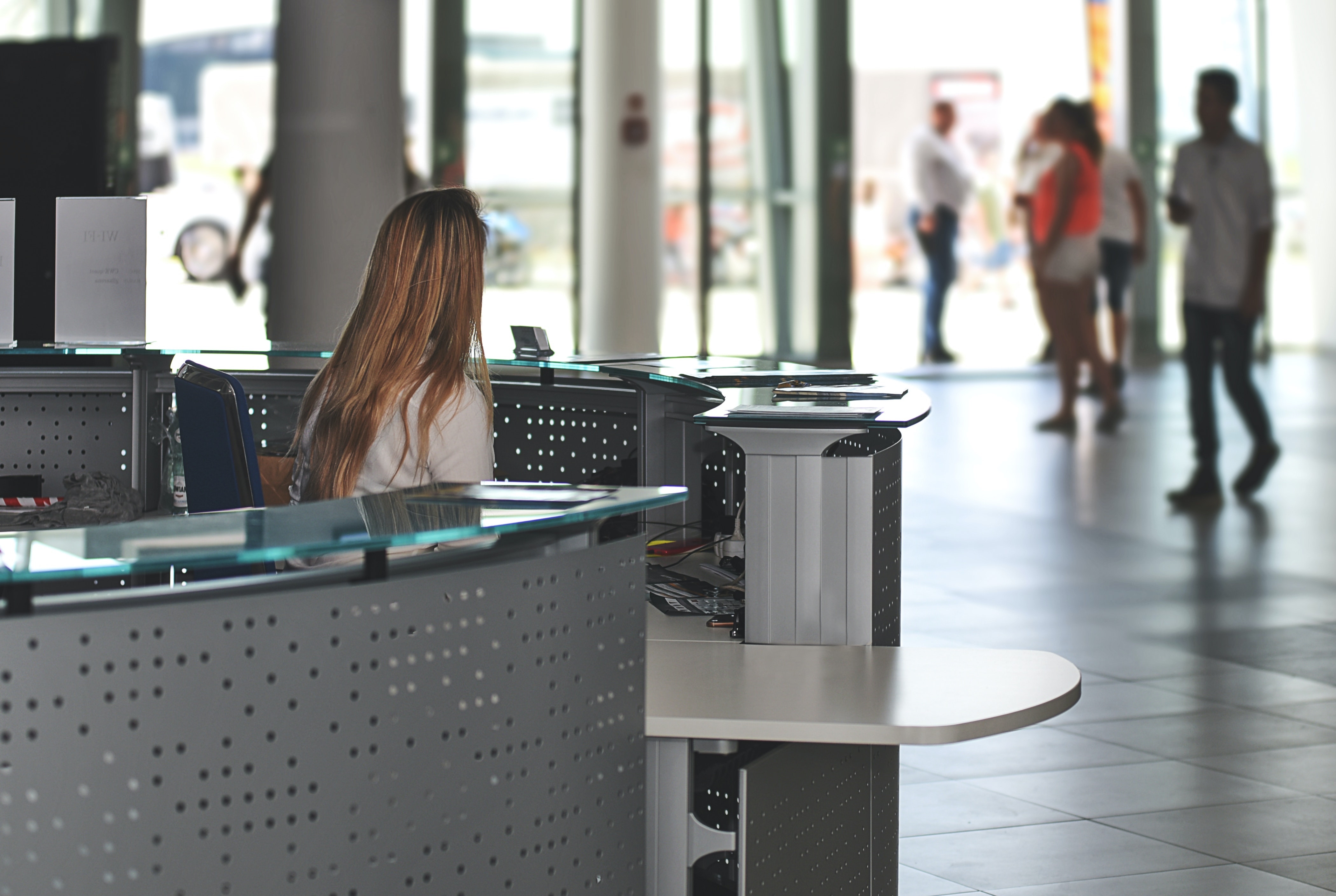
Visitor Management Systems streamlines the visitor’s access and sign-in process in the healthcare facility.
For more information to help your Chicago area facility, Please listen to the podcast on “Healthcare Security Systems” hosted by Thomas Carnevale, Founder of Umbrella Security Systems with our Guest, Myron Love – CHPA, CPP, PSP, PCI is the Director of Security Services for Ann & Robert H. Lurie Children’s Hospital of Chicago.
or
Chapter 2:
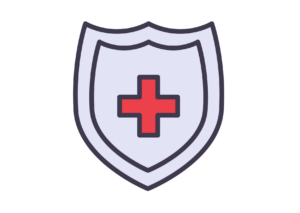
Unique Security Challenges for the Healthcare Industry
Each hospital or healthcare system faces a unique set of challenges, risks, and threats.
There are some issues that most hospital security personnel in the Chicago area must turn their attention to. Is your security team prepared for these challenges?
- Delivering a fully functioning hospital environment centered around overall care and well-being, including feeling protected from outside threats.
- Finding access control systems for healthcare that restrict access to areas without obstructing care in urgent situations.
- Balancing budgetary limitations without sacrificing high-functioning healthcare security systems.
- Installing healthcare security cameras in strategic locations, such as entrances of hallway bathrooms, emergency room entrances, employee entryways, parking lots, and garages.
- Protecting IT infrastructure to ensure the protection of electronic patient data.
- Securing and monitoring areas that contain pharmaceuticals, medical equipment, and other valuable hospital resources.
- Combining physical security strategies with cybersecurity approaches for the maximum protection of hospital assets.
- Developing a relationship with a security firm for regular follow-up and interaction that tests for issues and encourages future scalability.
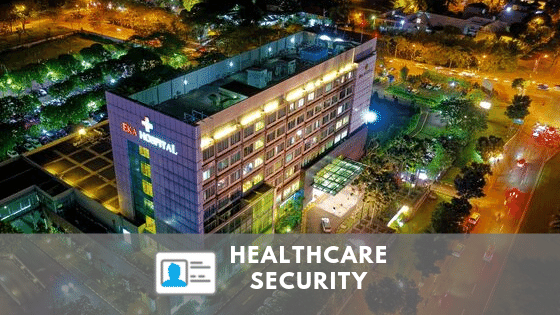
Umbrella Security Systems offers security design and integration that provide top healthcare organizations in Chicagoland with state-of-the-art healthcare security systems, access control systems for healthcare and video surveillance systems for hospitals like no other security innovation team today.
Request a free consultation or call us at 1-630-270-3313 for more information!
Contact Us
"*" indicates required fields
Chapter 3:
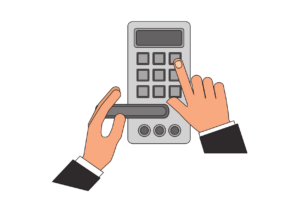
Access Control for Healthcare Facilities
Healthcare access control systems are crucial in securing the facilities’ sensitive areas.
Restricting access to unauthorized persons is critical to stop spreading germs, preventing theft of healthcare equipment and medicines, and safeguard all the people in the facility.
Healthcare facilities in Illinois have various ways that they can manage access, such as creating access credentials based on an individual’s role in the facility or on category-specific rules. Assigning access levels based on specific functions or regulations is essential for Healthcare facilities. For example, visitors can only access their patient wards, cafeteria, restrooms, and public areas. Being able to control visitor access based on time and date is also important.
Touchless Access Control
A modernized touchless solution can work in many different ways to protect your facilities’ assets and reduce the spread of illness throughout a high-risk environment.
Installing a touchless access control system or upgrading your existing access control system to a contactless system can help prevent the spread of germs. By reducing the number of “touchpoints” in the healthcare facility it can promote health and wellness without sacrificing security.
Touchless Access Control systems also prevent theft of healthcare supplies like prescription medications and medical equipment by keeping the supplies locked in restricted areas, which is only accessible by appropriate medical personnel.
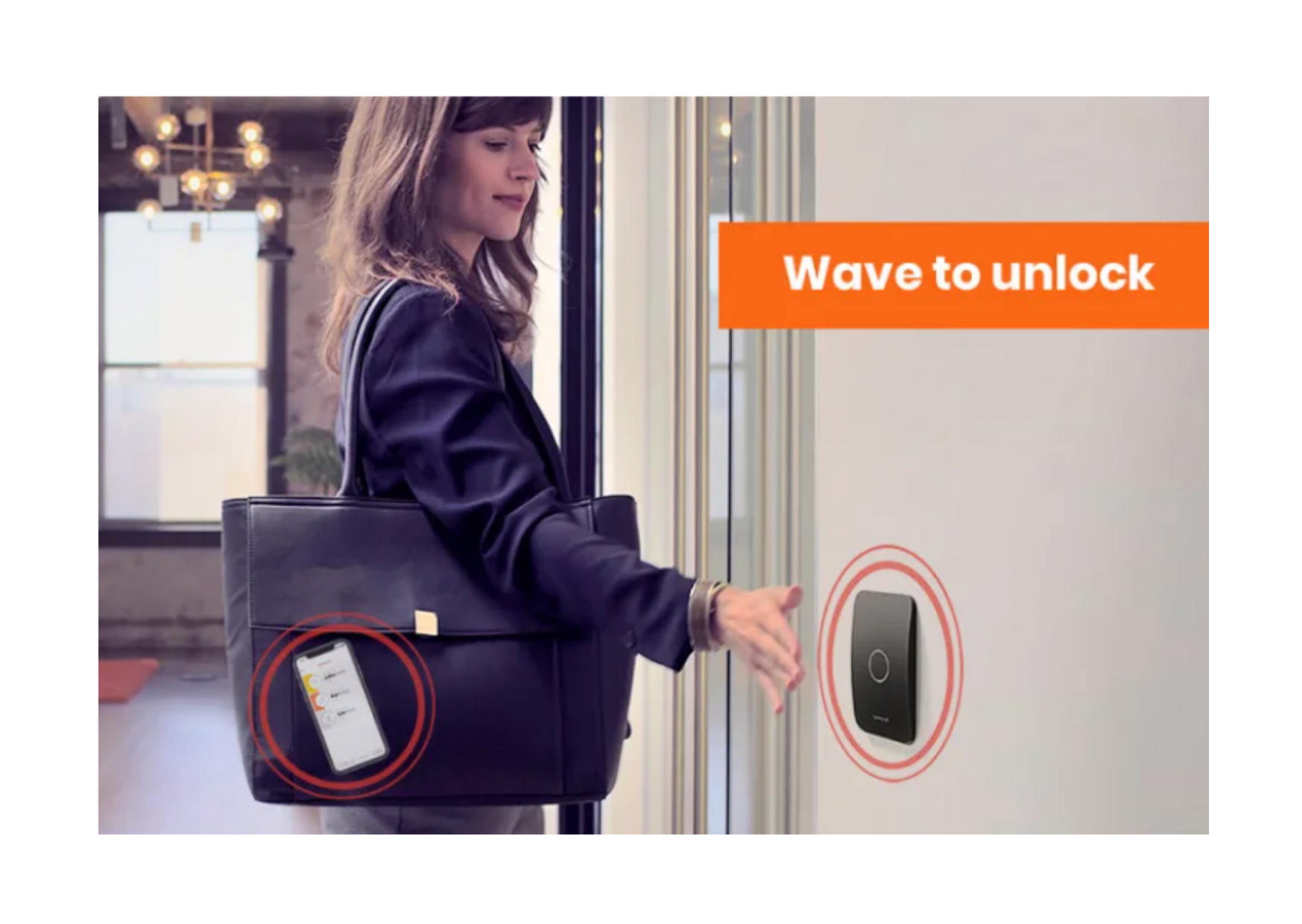
Patient, Doctor, and Staff Safety
It’s crucial to implement practices that keep patients, staff, and doctors in Illinois safe. Implementing modernized touchless access control systems with smart technologies and integration with other security systems can reduce the risk and provide patient, doctor, and staff safety in the healthcare facility.

Physical Barriers and Hospital Design
Physical barriers help to restrict access to unidentified individuals trying to enter the facility. Examples of the physical barriers are locked doors, turnstiles, perimeter gates, or other obstacles. These elements play a valuable role in designing a security system that controls access to specific areas in the facility.
Chapter 4:
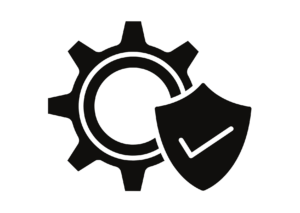
Security Management for Hospitals
Securing your Chicago area healthcare facility requires a combination of various security components.
The primary costs associated with access control are labor and installation. However, with simple component changes, your Chicago area existing system can become ready for any environment and be better prepared in the new world for stopping the spread of diseases like covid-19. Contactless Technologies enables safer workplace and provides confidence to businesses planning to reopen post covid.
You will not have to go through the tedious process of re-installing new systems. Upgrading to touchless will require minor and cost-effective changes to the existing access control systems.
You can rewire the card readers and door controllers to accept facial recognition with new components. These components will merely capture the employee’s facial features and send these back to the existing database for verification. You will only have to upgrade the touchpoints to offer contactless means of verification. The cost associated with such changes is worth it and will not take a toll on your budget.
Identity & Visitor Management
Healthcare facilities in Illinois face unique security challenges. Hospitals experience a massive volume of visitors throughout their facilities. Some of them have specific visiting times, while some have extended hours of visitation. Managing access at multiple entry points for visitors is crucial.
The types of visitors in Chicagoland healthcare facilities vary from vendors, delivery personnel, medical representatives to patient visitors. A complete operational security plan must be implemented to screen visitors and work with a visitor management system, access control, video surveillance, and mass notification systems.
Modern visitor management systems are designed with customizable solutions that can integrate with access control, video surveillance, and more. This complete visitor system helps with the following:
- Fast check-in: Visitors can quickly check-in at a facility entrance to receive a Personal ID credential that allows visitor-specific access throughout a facility.
- Setting Visitor Limitations: Based on your facility’s needs, restrictions can be set for the visitors. Patients wards like the ICU should have a higher level of security to restrict unexpected visitors.
- Deny Access: Deny access alerts can be set for attempted unauthorized access to a restricted area. This helps notify the building security about the facility’s unauthorized access attempt so that it can be promptly addressed.
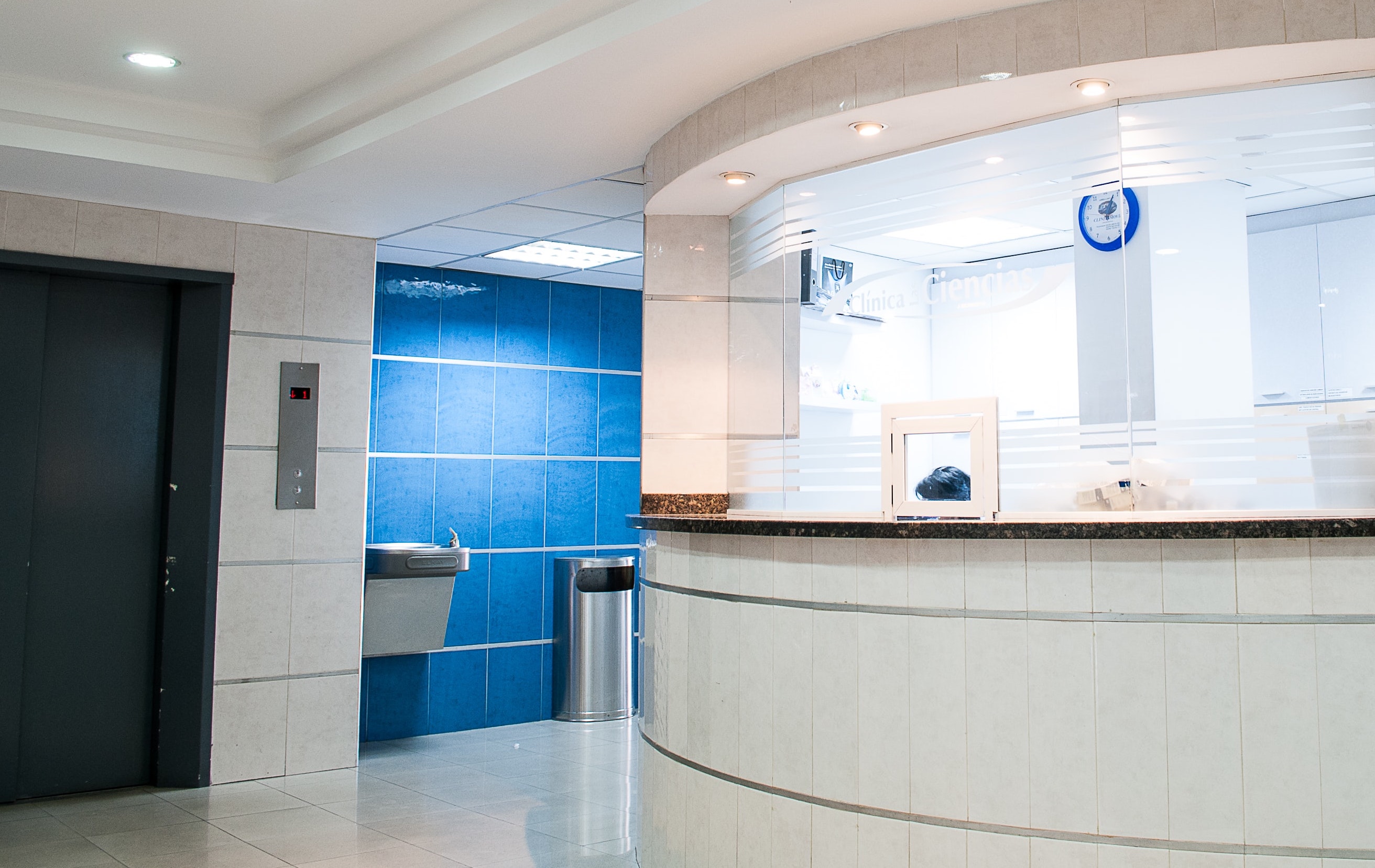
Intrusion Detection
Intrusion detection sensors are installed indoors or windows of your facility to detect when an unauthorized person enters your facility so that security protocols can be triggered. These sensors include glass break, motion sensor, door/window sensor, perimeter protection, multi-area arming.
- Motion Detection: These sensors detect the slightest movement either inside or outside the facility from a few inches of the door/ window. Once the sensor detects such motion, video surveillance systems are triggered to record the event and time stamp the video and store it in logs.
- Perimeter protection: The instruction detection system with perimeter begins at an entry point of the facility or gate or parking lot or combination of the above.
- Glass-break detection: These sensors alarms if an intruder breaks the glass and gains entry to the facility.
- Multi-area arming: This helps in arming specific floors or areas of the facility and are ideal for limited access areas or after-hours protection
Video Surveillance & Security Cameras
In Chicago area healthcare facilities, video surveillance systems are effective and an essential security tool to protect people and assets. There are several benefits of video surveillance & security cameras for healthcare facilities:
- Prevent Crime: To prevent crimes and break-ins by deterring potential threats with obvious monitoring.
- Prevent dishonest claims: Visitors or patients may make false claims, but with video surveillance, such claims can be refuted and disproven. Disputes can be resolved with video recordings as proof of the hospital’s incident.
- Real-time monitoring: The IP video surveillance system helps capture real-time videos to continuously monitor critical areas of the facility.
- Digital and cloud storage: Storing security footage in the cloud helps authorized security professionals to access video recordings anywhere and at any time.
Alarms & Mass Notifications
An emergency mass notification system is necessary for Illinois healthcare facilities to quickly alert doctors, staff, patients, visitors, emergency services, and affected communities. Segmenting the people in the facilities helps to alert the right people at the right time. These systems can also be used to provide information and support resources after an incident, such as contract tracing for COVID-19. Healthcare mass notification systems have to be compliant with state and federal regulations.
Fire & Air Detection Systems
Air, light, and sound detection sensors can detect gunshots, vaping, blind areas, harmful airborne contaminants, and more. These sensor systems help healthcare facilities by increasing safety and protection. It can monitor for airborne hazardous substances while reducing smoking and vaping in unauthorized areas. Gunshots and glass break detection throughout the hospital protects against criminal activity.
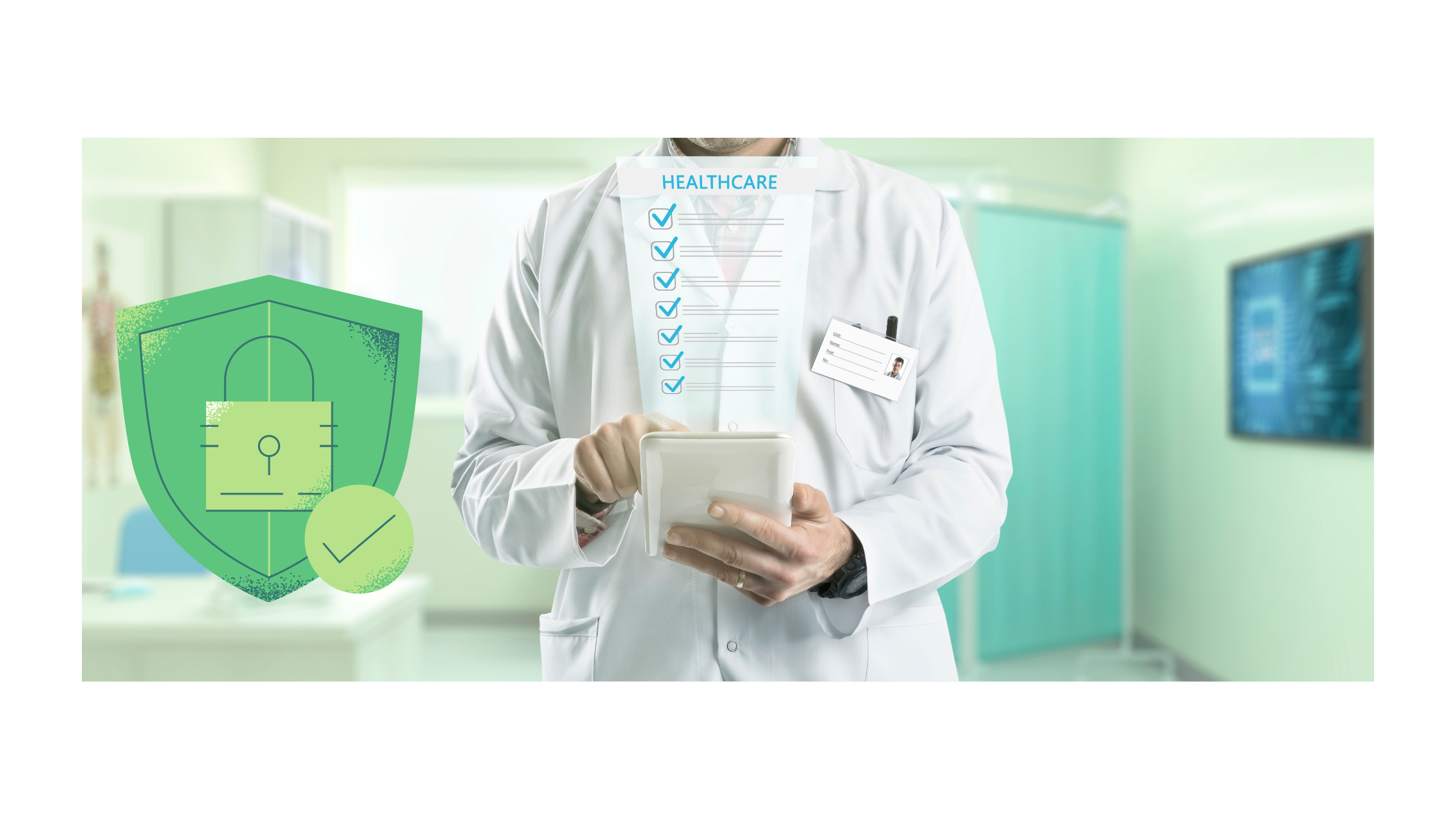
Regular Security Auditing & Evaluation
Regular security audits must be conducted to detect unauthorized access to patient information and reduce the risk of future inappropriate access. It is important to conduct a thorough forensic investigation on suspicious attempts made to access the facility or security breaches to patient privacy, detecting new threats, or intrusion attempts.
Hospital Security Risk Assessments
There are various security assessment tools designed to identify risks and proactively reduce future threats. These tools allow the healthcare organization to take the necessary steps to prevent possible threats.
Staff Response & Reaction
Some of the security staff complain about restrictions in performing their activities. When they arrive at the spot to resolve the issues, they face various dissatisfactory comments from other staff like nurses or generals staff in the facility. Nurses and others might think that patients’ care is the only priority but one must never take security concerns lightly. Cooperation and responsibility of each individual play an important role to de-escalate the situation and come back to normal at the earliest.
Chapter 5:

HIPAA Compliance & Security Policies
Data and Information security are extremely critical for healthcare organizations.
The Health Insurance Portability and Accountability Act (HIPAA) is a law that protects sensitive patient’s health information. Data security in healthcare facilities is a core element of the Health Insurance Portability and Accountability Act. HIPAA has implemented appropriate administrative, physical, and technical processes to ensure the confidentiality, integrity, and availability of electronically protected healthcare data.
HIPAA audits should be run and evaluated to ensure that healthcare organizations are compliant with HIPAA privacy and security rules and breach notification standards. Legal steps must be taken if individual policies go against the healthcare organization.
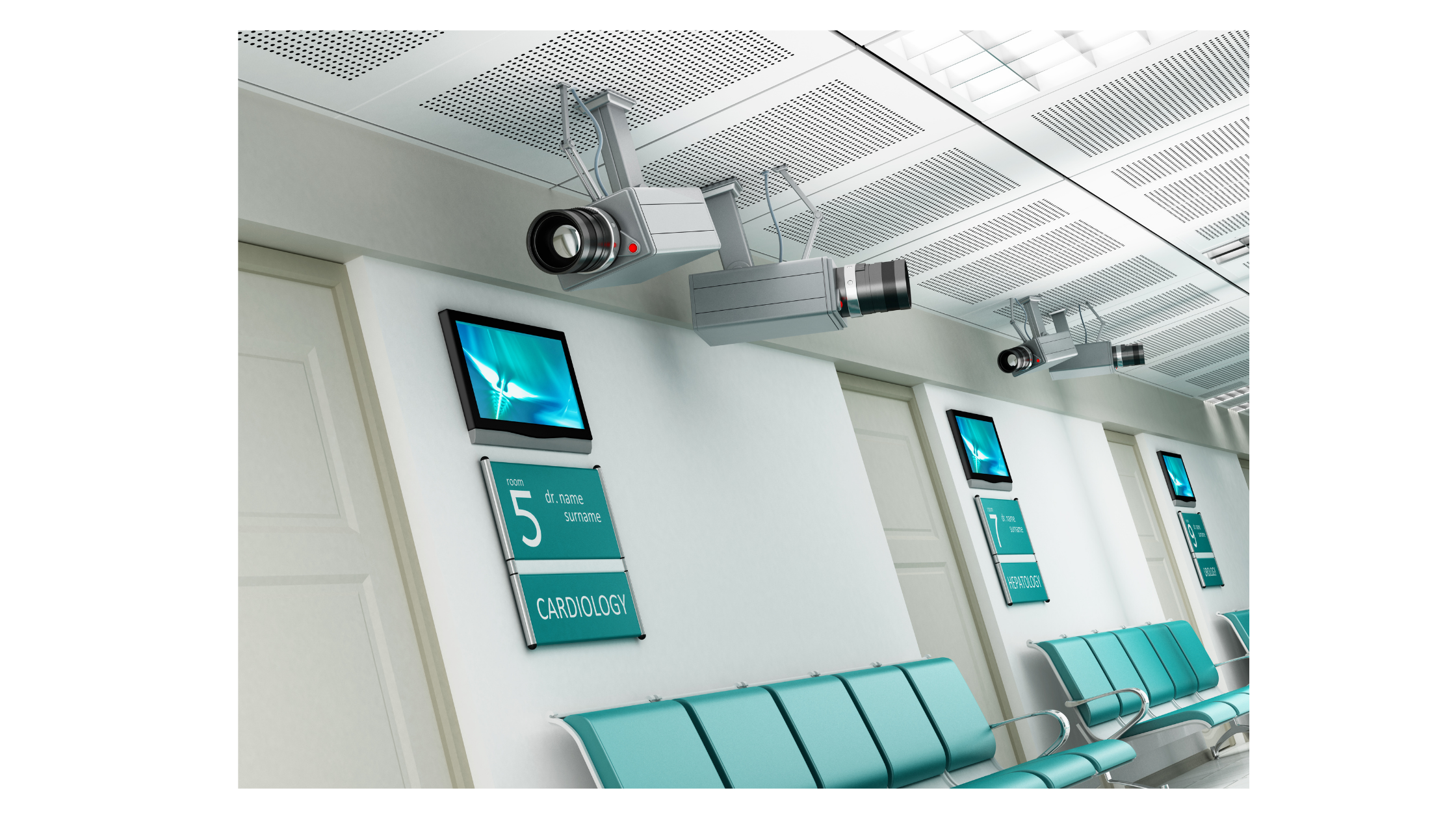
Safety Procedures
The United States Department of Health and Human Services (HHS) establishes national standards for protecting sensitive health information with the HIPAA. Prior to HIPAA, there were minimal security standards for protecting healthcare information in the facility. With the rise in new technologies, the healthcare industry began shifting from papers to electronic information systems to pay claims, answer eligibility questions, provide healthcare information, and conduct clinically based functions.
Staff Education & Training
Training and education are critical for enforcing safe and secure procedures. Educating the staff on proper handling of access, security systems, and authorized areas is crucial to a secure facility. Hospital staff is trained using drills in off-hours and business hours so that they can handle the situation at any time within the facility. These training not only protects against emergency situations but also violence activities like active shooting, infant abductions, etc.
Restricting Access to Controlled Substances
Only authorized people should have access to controlled substances. These substances must be stored in restricted areas of the facility, such as in locked closets within locked rooms. An access control system can be mounted on restricted area doors to prevent unauthorized access to the controlled site.
Chapter 6:
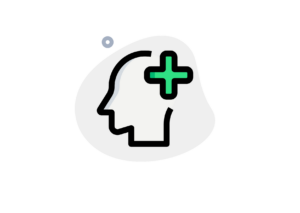
It May Be Time to Add Some Serious Intelligence to Your Healthcare Security Systems
Not too long ago, high-quality healthcare security cameras and security monitoring teams were sufficient to protect hospitals and healthcare facilities. But the challenges have changed in today’s globally-connected and chaotic environment. As a result, Chicago area healthcare security must continue to evolve to be a step ahead of threats.
Our hospital security team at Umbrella Security Systems has been hard at work listening to healthcare security personnel’s needs and developing multifaceted solutions for Chicagoland that get the job done. Here is what we have developed and offer to protect your hospital:
- A security consulting and system integration strategy.
- Cutting-edge video surveillance systems, designed for future scalability, performance, and functionality in a variety of environments and lighting situations.
- Access control and mass notification solutions, specially designed for your healthcare facility.
- Network solutions that adapt to the evolving threats on cybersecurity.
- A complete system that scales and grows with your healthcare organization.
Our Technology – Umbrella Security Systems
High-level technologies include:
Video Surveillance, Access Control, High-Definition Cameras, Cyber Security, Mass Emergency Notification Systems and much more.
The safety and security of your business are a top priority. Having a commercial access control system is essential to protecting your staff, property, and company information. In this complete guide, you will learn how to make informed decisions about your access control system and how to secure your business.
Video surveillance systems are more important than ever in today’s business environment. All businesses – large or small – need an effective system to protect their assets and remain profitable. According to the United States’ National Crime Victimization Survey, billions of dollars are lost every year to robbery, theft, and burglary.
Security camera systems may be the most powerful tool in protecting your business. Through proper implementation, business security cameras can deter crime, improve situational awareness, and even identify areas for improvement in business operations.
Umbrella Security Systems can help you plan for emergencies. There is a wide variety of software and hardware solutions available on the market, and Umbrella Security Systems can help you choose the right mass notification system to protect your business.
Every business participating in today’s globally digital landscape understands that threats to their network infrastructure is part of the price of doing business. Public and private businesses in various sectors stay vigilant in blocking cybercriminals from gaining access to network infrastructure.
The IoT smart sensor is a security monitoring device that detects threats in sound, light or air. The complex sensor solution is solving major health and safety problems within a compact mechanical design with no recurring software expenses.
Umbrella Security Systems has the potential, experience, and expert knowledge to guide you with the best security solutions for your Chicago area healthcare facility.
Get in touch and schedule time with us to learn more about all the security innovations we offer to keep hospitals safe and secure.

